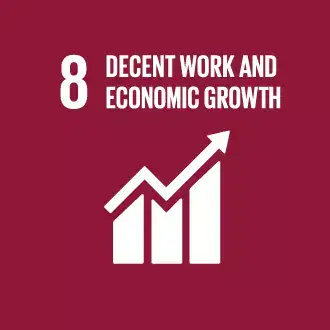

Decent work brings meaning to our lives. It gives us structure, dignity, and purpose. It strengthens our sense of community and encourages us to act morally for the greater good. When we lose meaningful work or fail to find it, many of us lose our way.
Even before COVID-19, the global labour force participation rate for women between the ages of 25-54 was only 63 per cent compared to 94 per cent for men, according to statistics collected by UN Women. More than 2.7 billion women are legally restricted from having the same choice of jobs as men and only 58 per cent of women worldwide have access to a bank account. Many women also lack recourse to legal protection over workplace harassment and discrimination, and only 40 per cent of women worldwide have social protections like pensions, unemployment benefits or protected maternity leave.
Additionally, 22 per cent of young people are not in employment, education, or training. The global pandemic has further diminished their prospects and disrupted labour markets around the world. 500 million full-time jobs or their equivalent were lost in the second quarter of 2020. In the informal economy, 1.6 billion workers’ livelihoods still hang in the balance. This ongoing economic and social disruption has disproportionately affected women, risking progress made on gender equality in recent decades and profoundly threatening the long-term prosperity and wellbeing of vulnerable communities everywhere.
In times of crisis and uncertainty, meaningful employment offers resilience and hope. Decent work can also be a catalyst for social cohesion and peace. With public health top-of-mind, faith-based organizations and religious institutions have critical roles to play in safely getting people back to work and advancing Goal 8.
Goal 8 aims to promote sustainable and inclusive economic growth, full and productive employment, and decent work for all. Sustainability here means increasing resource efficiency in consumption and production and decoupling growth from environmental degradation. Inclusivity means equal opportunity and equal pay for work of equal value. It also means supporting entrepreneurs and small enterprises with access to financial services and markets. To succeed, UN partners are working with governments and communities to achieve higher levels of productivity through diversification and technological innovation. Meeting the Goal 8 targets requires us to protect labour rights, promote safe and secure working environments, and eradicate modern slavery, human trafficking, forced labour, and child labour.
Faith-based organizations and religious institutions have long worked together to advance these goals. In early 2019 prominent faith actors that champion economic justice as a moral imperative convened at the UN headquarters in New York to discuss financing for sustainable development. The meeting centred around the concept of an Economy of Life that prioritises people over profits and embraces sustainable resource management.
The global grassroots interfaith network United Religions Initiative co-organized the event. URI’s economic opportunity projects empower vulnerable communities to exercise their employment rights with dignity. In Nigeria, URI and its partners defend small farmers from corporate giants who try to take their land. In India, they provide legal aid and job training to exploited tribal women. In the Africa Great Lakes region, they help break the cycle of poverty by enabling women to pursue careers.
The Salvation Army’s International Social Justice Commission attended the Economy of Life summit and followed up by launching its Fight for Freedom strategy to end modern slavery and human trafficking. The campaign supports survivors and addresses the root causes of these evils. World Vision focuses its economic empowerment strategy on the related goal of ending child labour and exploitation. The Christian organization promotes sustainable employment opportunities and market systems that help poor families become economically self-reliant so their children can study instead of work. When families build productive and resilient livelihoods, they go from merely surviving to thriving with dignity. World Vision also strengthens financial inclusion through increased access to markets, savings groups, and microfinance services.
Faith-based organizations act as leading microfinance providers in many of the world’s poorest communities. Catholic Relief Services’ microfinance programmes encourage clients to save and invest in income-generating microenterprises, helping poor households and communities create sustainable growth. Their approach has created economic opportunities for millions of people in dozens of developing countries. Islamic Relief USA uses donations as microfinance loans to help beauticians, embroiderers, shop owners, and other entrepreneurs in Pakistan start and grow their businesses. When recipients repay their loans, that same money is reused to help lift other people out of poverty.
The Coptic Evangelical Organization for Social Services works to economically empower disadvantaged Egyptians --particularly women, at-risk youth, and people with disabilities -- using sustainable development practices. Their technical and administrative skills training courses boost job-seekers’ employability and connect them with decent work. CEOSS also issues thousands of microloans to help poor Egyptians build economic projects that provide them and others with meaningful employment. Unlike traditional loans, these come with ongoing practical support, enabling recipients to advance their own interests and rights.
Digni unites 20 Norwegian mission societies and churches that work against poverty. Their economic empowerment projects support skills training institutes and entrepreneurship centres that prepare disadvantaged groups for employment around the world. Norwegian Church Aid’s Climate Smart Economic Empowerment programme helps small-scale food producers lift themselves out of poverty by increasing their access to equipment, finance, and markets, which in turn increases revenue and job opportunities, particularly for women and youth. ACT Alliance brings together 130 Protestant and Orthodox churches and organizations in more than 120 countries to create positive and sustainable change for poor and marginalised people. They address systemic poverty by training farmers in sustainable agricultural techniques that boost community resilience.
These faith-based organizations and religious institutions are so successful in creating meaningful jobs, improving labour market conditions, and reducing poverty around the world because they are motivated by social and economic justice above profit. As true believers in the Economy of Life, faith actors empower the world’s poorest communities and are vital partners in promoting sustainable and inclusive economic growth and decent work for all.